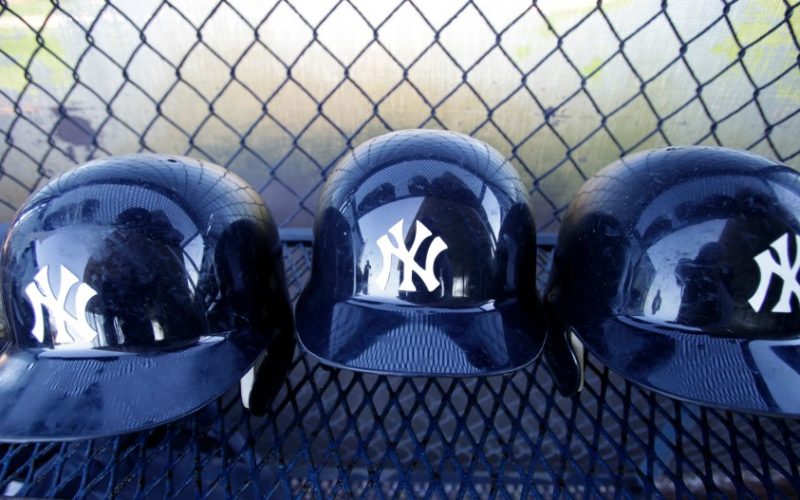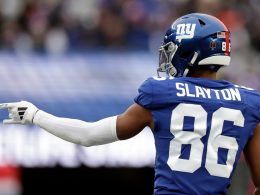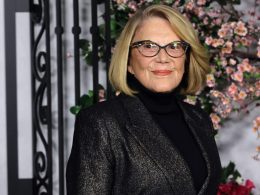Remember when Brian Cashman said, “I think we’re pretty f–king good” at the 2023 GM Meetings?
Yankees fans who saw that quote out of context may have fumed at the general manager after the pinstripers missed the playoffs in 2023. But Cashman, who spoke for over 100 contentious minutes that day, wasn’t referring to the Yankees’ on-field, major league product after previously labeling the 2023 campaign a “disaster.”
Instead, that quote specifically defended the organization’s personnel, including coaches, front office members, scouts and analysts.
“I loved it, obviously, because I felt like he was going to bat for me and other people in our department,” Kevin Reese, the Yankees’ vice president of player development, told the Daily News. “And I agree. I think we have great people.”
Other teams seem to concur, as they’ve been pillaging the Yankees for coaching and player development personnel all offseason. At the time of publication, the Yankees had lost 14 such employees, according to numerous sources, reports and press releases.
If that seems like a lot for one offseason, that’s because it is an “unusually high number,” according to Reese.
Three of the departures have come from the Yankees’ major league staff: Assistant pitching coach Desi Druschel took the same job with the Mets, while analyst Aaron Leanhardt joined the Marlins as a field coordinator. Bullpen catcher Collin Theroux accepted a minor league position with Miami.

Minor league hitting coordinator Joe Migliaccio is now the Marlins’ director of hitting. Complex pitching coordinator Ben Buck joined the Red Sox as a pitching coordinator. Parker Guinn cracked Boston’s MLB staff as a catching instructor/bullpen catcher after managing the Yankees’ Dominican Summer League team. José Javier is the Cubs’ new first base coach after working as the Yankees’ Triple-A defensive coach. Director of speed development and baserunning/roving hitting coach Matt Talarico also joined the Cubs as their new baserunning offensive coordinator. Rick Guarno went from being the Yankees’ High-A hitting coach to the Mets’ Triple-A hitting coach, while David Adams took a field coordinator job with the crosstown rivals after serving as the Yankees’ director of Dominican Republic baseball operations.
Trevor Amicone, previously the Yankees’ Triple-A hitting coach, is now the Twins’ assistant MLB hitting coach. Graham Johnson is the Blue Jays’ big league bullpen coach following a stint as the Yankees’ Triple-A pitching coach. Double-A hitting coach Kevin Martir took the same job with the Brewers. Nick Ortiz became a minor league infield/baserunning coordinator with the Astros after managing the Yanks’ High-A club.
“I’m kind of a selfish guy who would hope to retain our best coaches,” Reese said, “but I’m excited about the opportunities they got.”
SEEN AS A GOOD SIGN
While some of the departures received promotions, others took what appear to be similar or lateral jobs. However, even gigs with the same title can come with raises, more opportunities for career advancement, and personal benefits, such as geography and preexisting relationships within an organization.
When The News asked about the Yankees’ departures this offseason, past and present members of the organization described the exodus as a testament to the club.
“I lived it. I grew up in that organization,” said Carlos Mendoza, who became the Mets’ manager last offseason after 15 years of filling numerous Yankees roles, including big league bench coach. “The fact that a lot of coaches continue to be pulled away by many different teams says something about their player development program.”
Aaron Boone, whose own staffs have promoted from the Yankees’ farm over the years, said that Reese and the team’s player development department has done “a really good job of hiring people who are valued in the industry.”
Dillon Lawson, who worked as the Yankees’ minor league hitting coordinator before being fired from his post as MLB hitting coach halfway through the 2023 season, also highlighted Reese.
“One of his most redeeming skills that I got to witness was his ability to evaluate not just players, but also future employees,” said Lawson, who is now Boston’s assistant MLB hitting coach after taking a minor league job with the club in December 2023. “We were given support and guidance from Kevin on how to hire well.”
Lawson also credited Yankees director of player development Eric Schmitt and assistant director of player development Steve Swindal Jr., as well as current and former employees like Druschel, Leanhardt, Sam Briend, Andrew Wright and Dave Whiteside, who were given latitude to build their respective departments, implement new ideas, and/or make hires of their own.
“They did a really good job of bringing in some people who respected the Yankee tradition, but who were also still looking to move things forward,” Lawson said.
Those who spoke to The News said that staff and coaching development has become a greater area of focus across baseball and one of success for the Yankees.
Reese said the club previously had a job with a title that included “staff development.” While that position is no longer in place, he said that he spends more time on staff development than he does working with players.
Lawson said that the COVID-19 pandemic allowed the team to build out educational infrastructure, or what he called “Yankees University,” in 2020.
“It’s an environment where people are learning and challenging each other,” Mendoza said. “The word gets around.”
Added Guarno: “You’re hearing a lot of the same things from a lot of people, probably because it’s the truth. It was a really good working situation for a lot of people. We loved it. We had a great group across multiple departments.”
PUBLIC VS. INDUSTRY PERSPECTIVE
Some fans might be surprised to see minor league Yankees employees in high demand, as not everyone in the public sphere views their recent player development history in the highest regard. That’s especially true on the offensive side of the ball.
Outside of Aaron Judge, the Yankees’ current roster doesn’t boast any homegrown hitters with track records of success, though Anthony Volpe, Austin Wells, Jasson Domínguez and Ben Rice have had mixed results in the early stages of their big league careers and are expected to contribute in 2025.

Asked about criticism of the Yankees’ player development program, especially on offense, Reese said that “hitting is hard” and that “there’s always an adjustment process.” He felt that that process gets “less tolerance” in New York, where the Yankees are always in win-now mode.
While public perception of the Yankees’ player development isn’t always favorable, multiple coaches no longer with the organization said opposing teams see the Bombers as a model to follow.
“’The Yankees are the best at developing hitters in the game,’” one of the team’s former coaches, who requested anonymity, remembers being told during an interview with another club last offseason. “’We want to figure out what you guys are doing.’”
That same coach said the Yankees have a broader view of what constitutes player development success than the public.
For example, Volpe’s inconsistent offensive performance thus far has rightfully fueled some questioning from fans and media. But the coach also contended that someone like Rafael Flores, a JUCO discovery turned notable prospect, or Abraham Ramirez, signed out of Venezuela for $30,000 before being included in the Jazz Chisholm Jr. trade, are player development success stories because they went from being unheralded to farmhands with value.
“I understand fans want homegrown players to come and be stars,” said another former Yankees coach who asked to remain nameless. “But what they’ve done a very good job of in the past few years is developing players to the point where they are trade targets for other teams.”
That answer may not satisfy critics who want young major leaguers to shine right away, but Reese reasoned that league-wide interest in Yankees personnel is evidence that player development is doing something right.
“When other teams are coming after them and getting promotions and bringing guys to the big leagues, that speaks well to the people that we had,” he said. “And hopefully the people we continue to have.
“We take a lot of pride in having good people and continuing to build it. As we search and replace some of the people that we lost, I think that should be a little bit of a selling point, and it is a selling point for us when we’re hiring. It’s like, ‘Hey, come work for us. We had a freakin’ guy coaching in the D.R. last year who got a major league job with the Red Sox.’ I mean, it’s stuff that’s kind of crazy.”
A WIDER HIRING WINDOW
Three sources also noted that a change to the team’s contractual schedule may have assisted the mass migration that occurred this offseason.
Contracts for Yankees coaches used to expire on Dec. 31. However, they now expire at the end of the season, which is how most teams have operated. Not every coach that left the Yankees this offseason was on an expiring deal, but that change gave hiring clubs more time to work with.
“In the past, it was harder to get Yankees coaches because the dates didn’t line up,” said one of the anonymous ex-coaches. “Everybody’s trying to hire new coaches in November, early December, and the Yankees contracts weren’t up until the end of December. Now that everybody’s contract with the Yankees lines up with everybody else at the end of the season, it does make it a lot easier to get to an interview and request interviews for Yankees coaches.”
The other anonymous coach theorized that because the Yankees went all the way to the World Series, they had other priorities as the offseason quickly began and some minor league coaches saw their contracts expire. That same person also pointed out that successful teams are less likely to shake up their MLB staff. That means fewer advancement opportunities for the club’s minor league coaches.
Asked if the schedule change contributed to the Yankees’ personnel losses this offseason, Reese replied, “It is a little like the Rule 5 Draft. You can’t necessarily protect and promote everyone. The biggest reason is these are good employees who have done great work and have earned the chance to take on more responsibility.”
Former Yankees coaches who mentioned or were asked about the changing dates stressed that the team wasn’t negligible when it came to retention. Multiple former employees said the Yankees made an effort to keep them and others; the team just couldn’t match the promotions that other teams offered.
“There are only so many spots for people to move up before there’s a logjam,” said Guarno, who had an offer to stay with the Yanks. “A baseball organization is a lot like any other job that somebody outside the game of baseball would work in, and it kind of has a similar structure. The average fan can understand that everybody can’t be promoted all the time in any organization.”
One of the anonymous coaches said the Yankees have a reputation for offering more money and responsibility when minor league coaches receive offers elsewhere. They added that, prior to this offseason, when the window to poach Yankees minor league coaches was tighter, some teams often wouldn’t even interview pinstriped candidates “because they knew you would end up getting a big bag of money dropped in front of you after they offered you a job.”
With vacancies to fill before the 2025 season, a slew of new coaches at various levels will now earn the Yankees’ money.
Some hires are already in place, while others, in the right spot at the right time, were able to get promotions. Still, after so many exits, Reese likened the situation to losing players via trades and free agency.
“Now,” he said, “we just gotta rebuild.”








